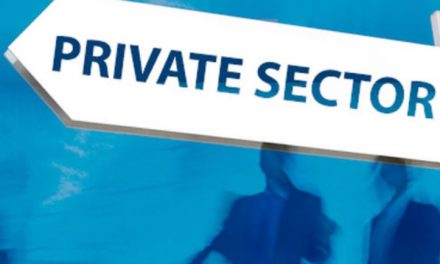
If fate wants to get you, it will

There is an expression that says, “Just because you are paranoid doesn’t mean you don’t have enemies.” My neighbour is paranoid. He has set up one of these ‘fry-and-die’ electric fences. Unfortunately it has not been grounded properly and my telephone line clicks like a nervous Geiger counter in a nuclear smelter. It is ruining my ability to send e-mails, and retards my workflow. His paranoia is rapidly earning him an enemy.
There is something to be said for paranoia. A quick look over the shoulder is all that it takes to spot the axe-wielding maniac and make the decision to scream and run. Unfortunately paranoia can also be the spanner in the wheel of life’s bicycle that sends us tumbling over the handlebars to a gory, but somehow ironic fate.
Irony is running from a leopard right into the jaws of a waiting lion. Irony is walking into a pole as you smugly look back at the open manhole you just sidestepped. Irony is putting up an electric fence to keep your enemies out, only to find out that it has made you more enemies. If fate wants to get you, it will.
Fate is a Calvinist with a wickedly perverse sense of predestination. In this regard, consider the experiences of a friend who will go unnamed. After a first burglary, he put up a two meter wall. This piqued the burglars’ interest and they went over the wall. He too installed an electric fence. The burglars broke through the wall, beneath the thief-zapper. He finally installed expensive, directional motion sensors. Unfortunately, the thieves saw their value and took those as well. Fate is a four letter word.
Insecurity and paranoia have become the control mechanisms of our time. New York post-punk band Radio 4 accurately describes the current global emotional tenor in their song. ‘State of Alert’: “Hear the sirens. Everything has suddenly changed. Can’t feel normal. Everyone is looking so strange.” Faced with continuous fear, the individual will do anything to alleviate the fear and return to normality. All you have to do to exert control is understand the fear and offer alleviation.
Of course, if no fear exists, it is easy enough to manufacture one that suits your specific purpose. In the words of advertising giant, David Ogilvy, “If you want to sell fire extinguishers, start a fire.” If you want to sell health bread, ask mothers if they are feeding their children well enough. If you want to sell bizarre Swedish ‘performance enhancers’, ask a man if he is well endowed. If you want to convince people to vote for you wherever ‘here’ is, ask your voters if they really trust a bunch of people half a world away.
Naturally people fall for their fears and inevitably things get a whole lot worse. The children get grossed out by the health bread and develop junk food habits and morbid obesity before the onset of adolescence. The man with the Swedish vacuum pump buys a luxury German open top and develops a worse insecurity complex due to the laughter of women as the wind blows over his bald patch. And the voters discover the perils of the exercise of foreign policy as yet another bunch of ragged ideological malcontents demonstrate their own amazing ability to ‘seriously kick superpower butt’.
Is there a moral to this story? It could be that we need to confront and exorcise our demons, no matter how scared we are. Unfortunately, this is not always the perfect solution, especially if your personal demon walks around carrying a baseball bat, signs your pay slip or, worse yet, comes accompanied by a lawyer holding a document that would make Satan shudder.
So the moral of the story should probably be that there is no real need to seek out and confront your fears. In fact, like debt collectors, door-to-door jobseekers and beggars with bright smiles and interesting sores, they will find you.
No need to stress. No need to get paranoid like my neighbour with the fence. As Murphy says, if it can go wrong, it will.













































